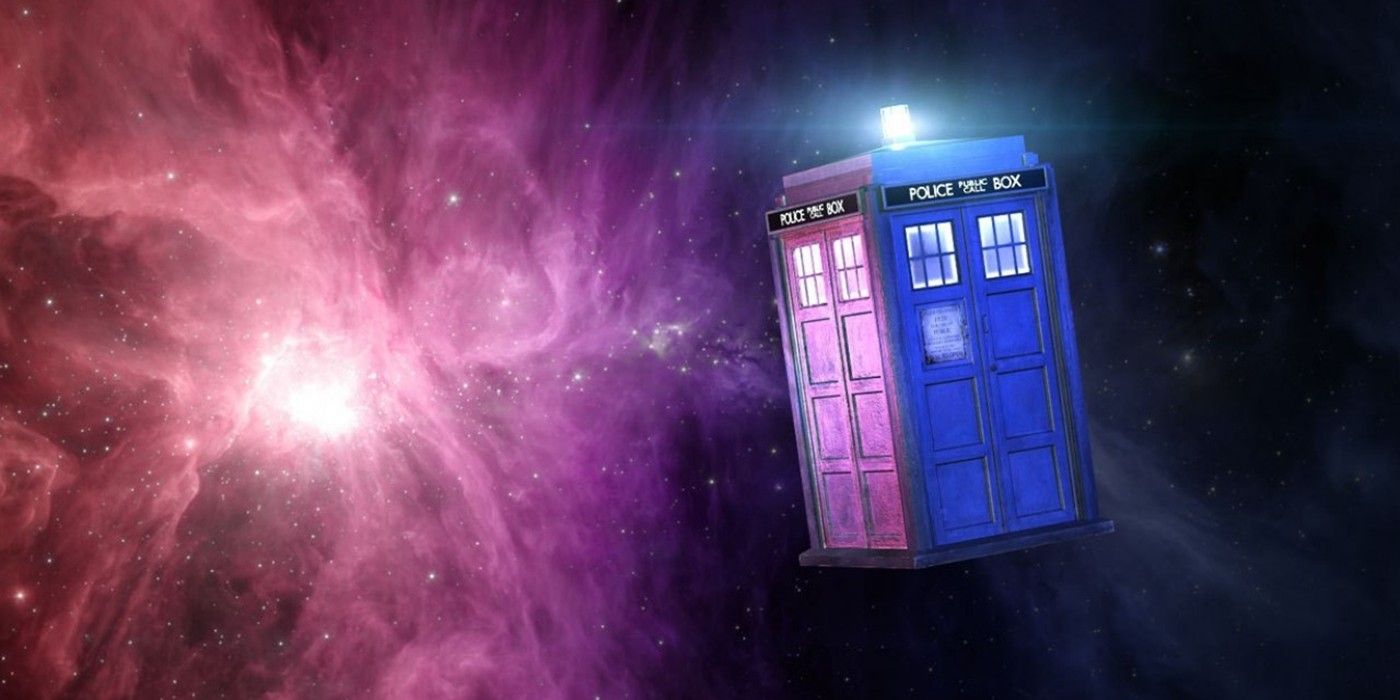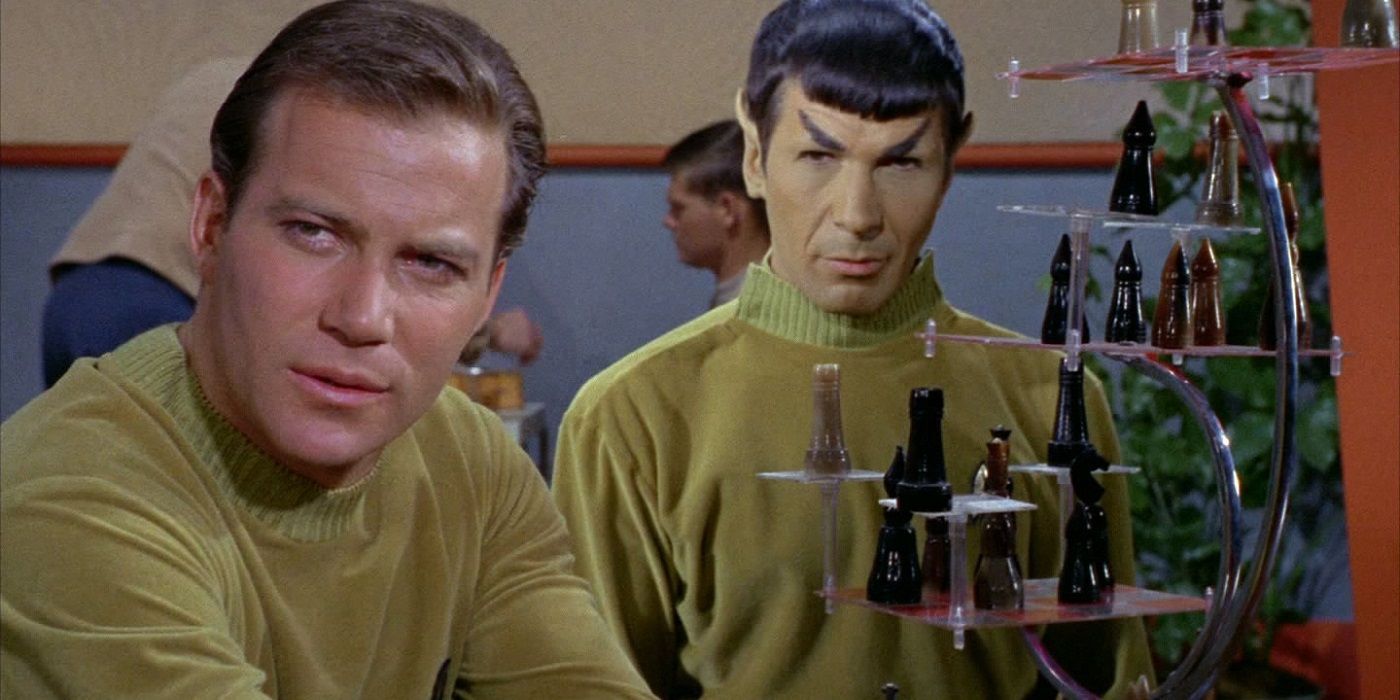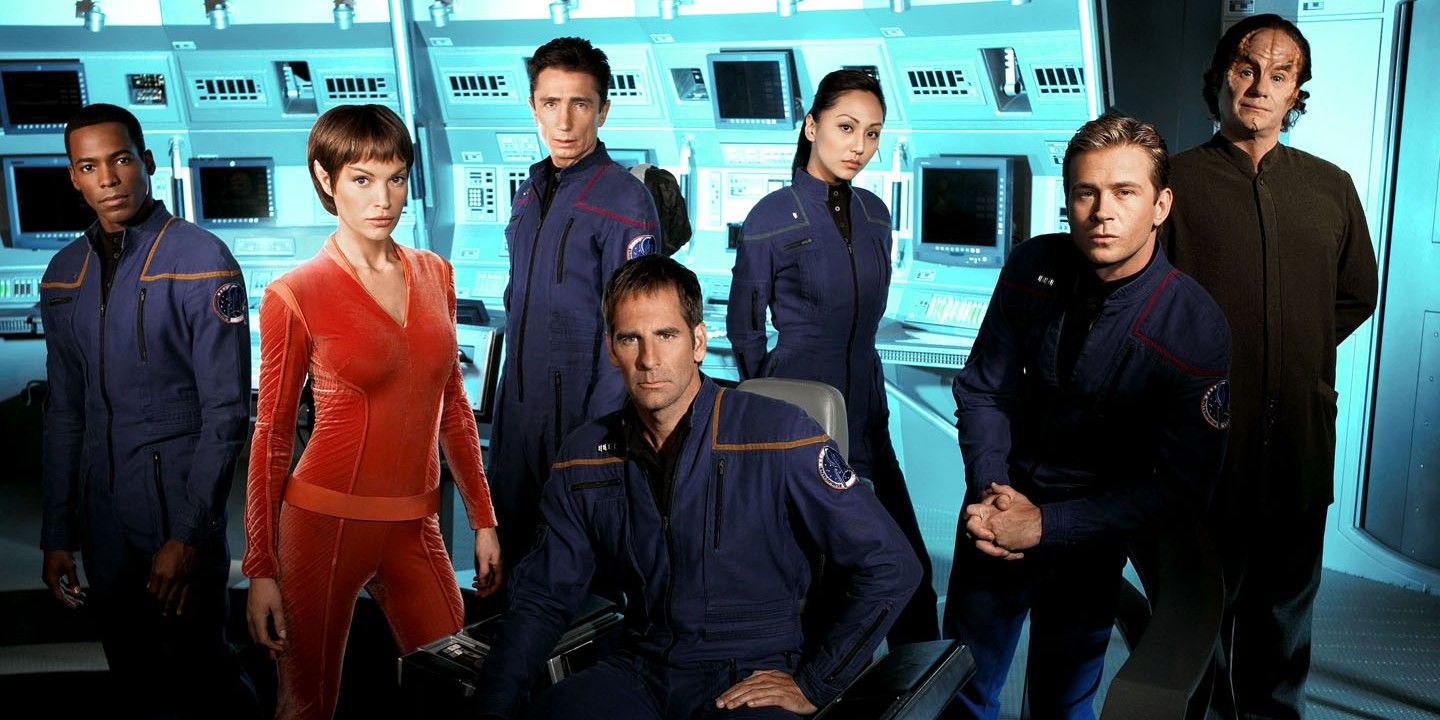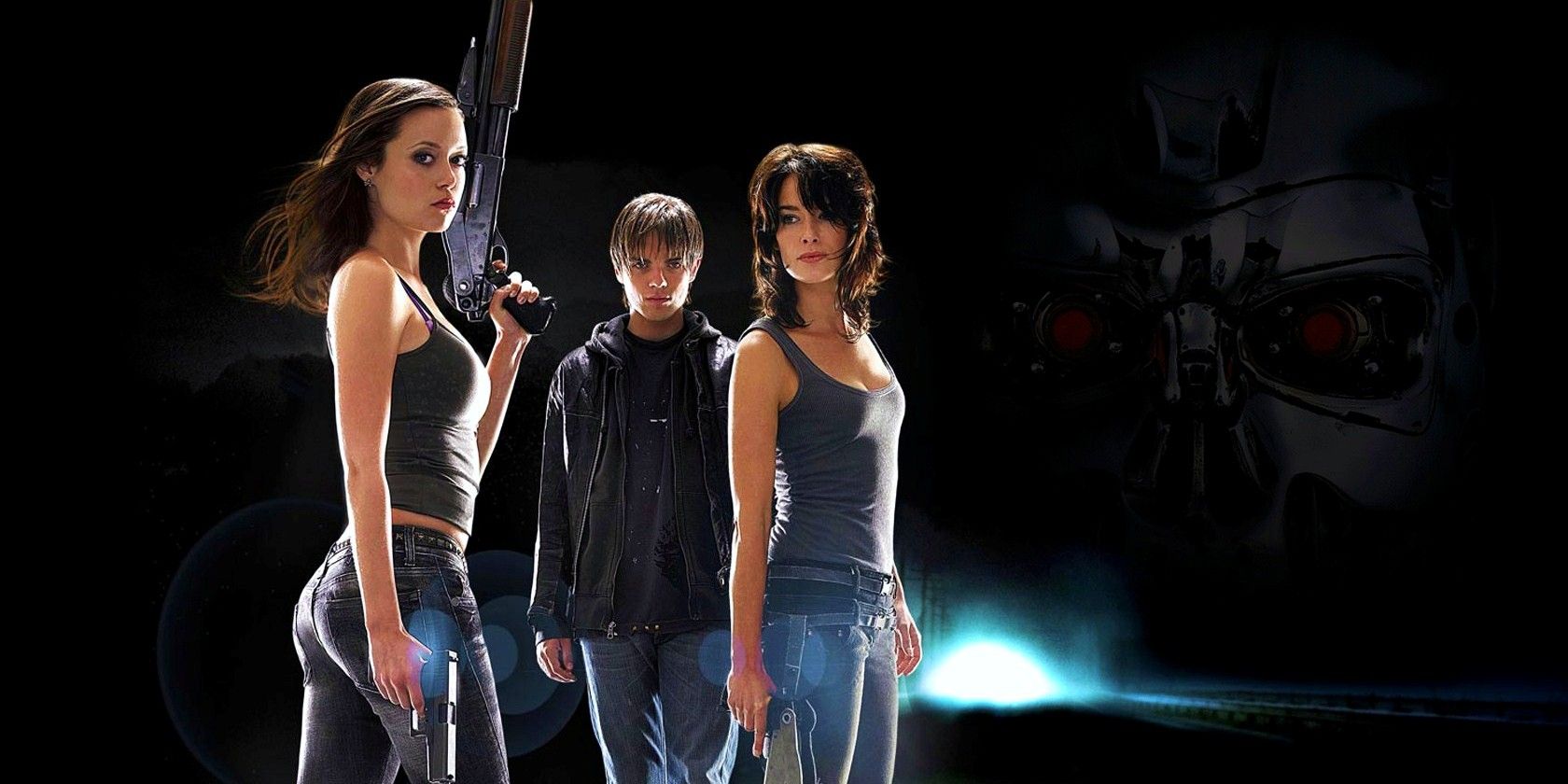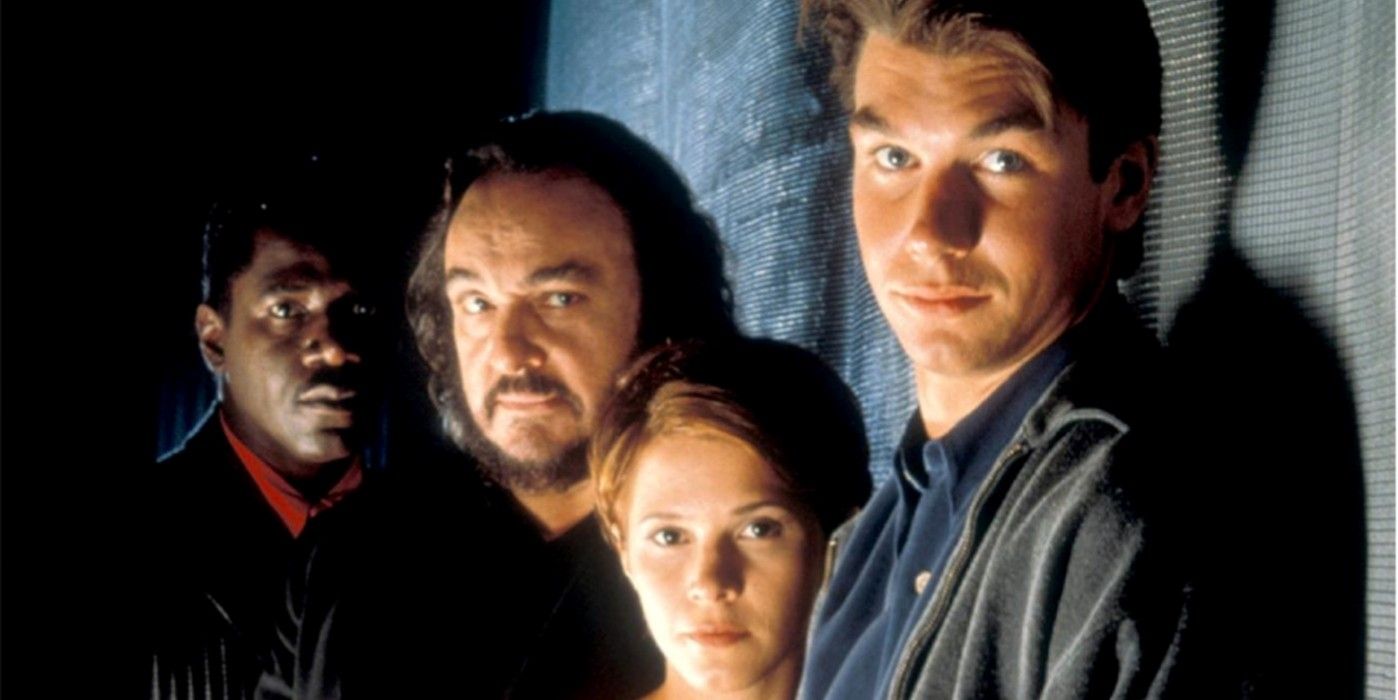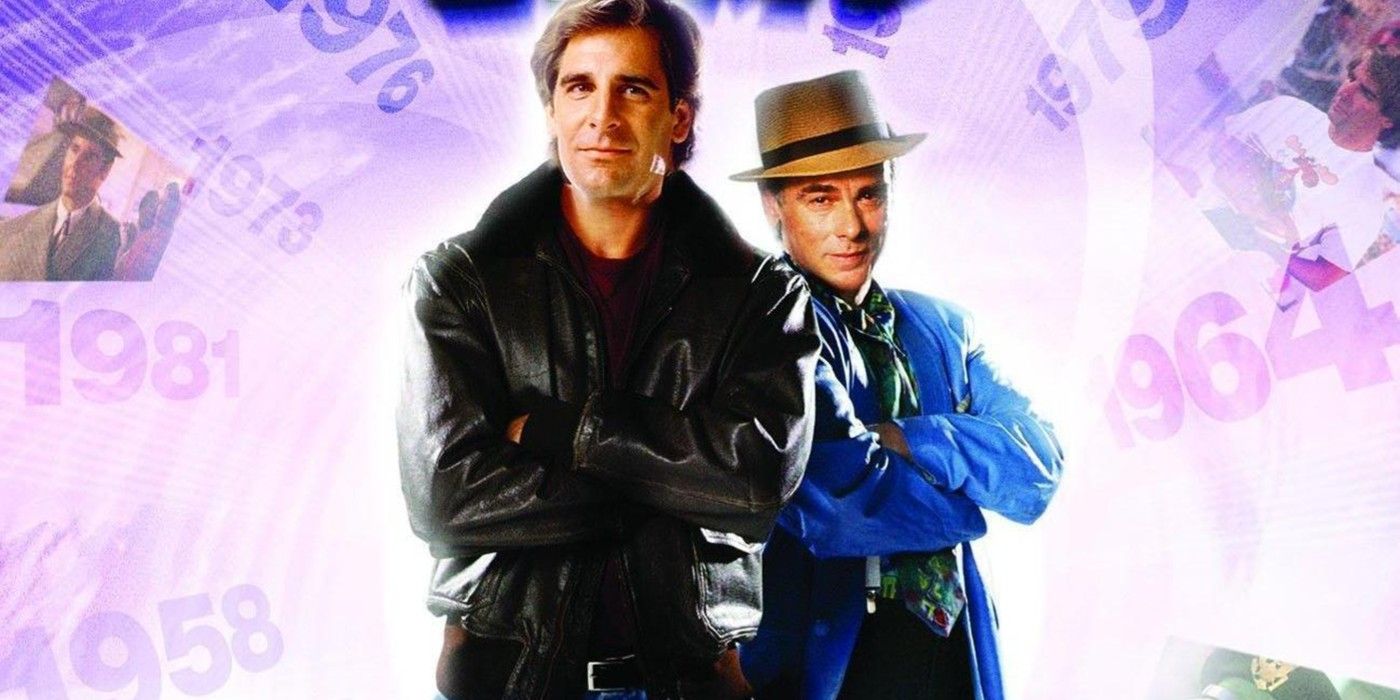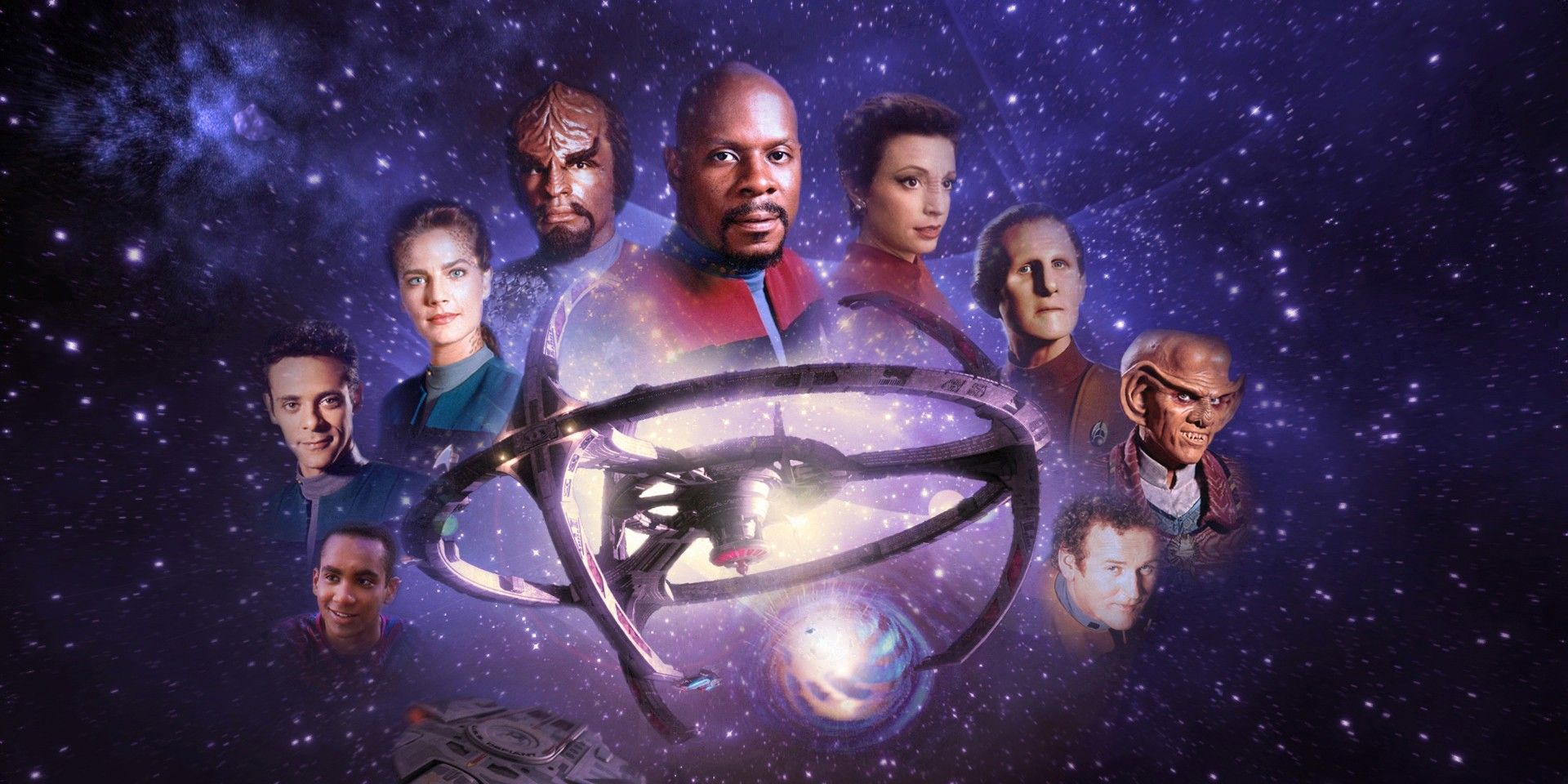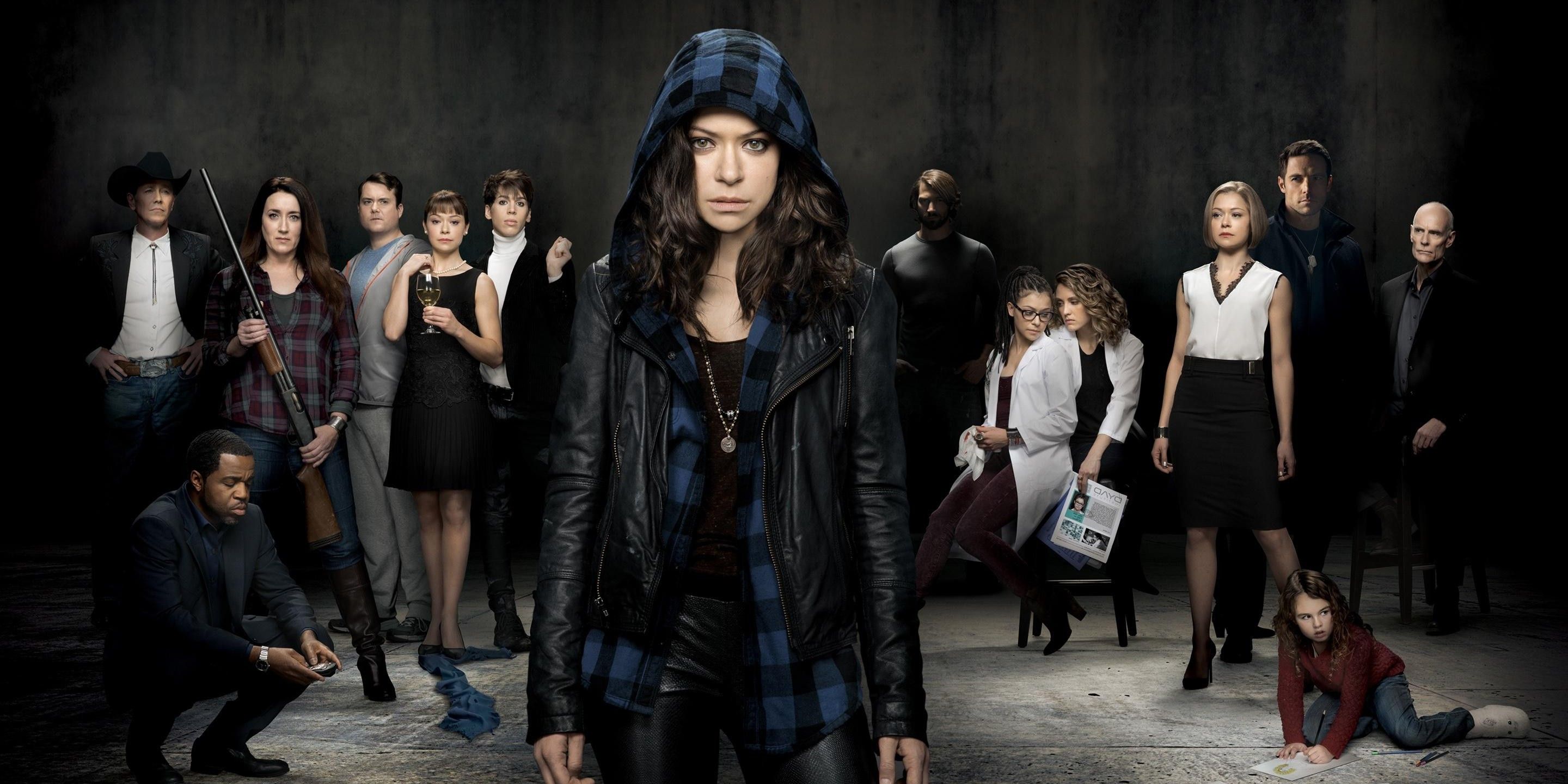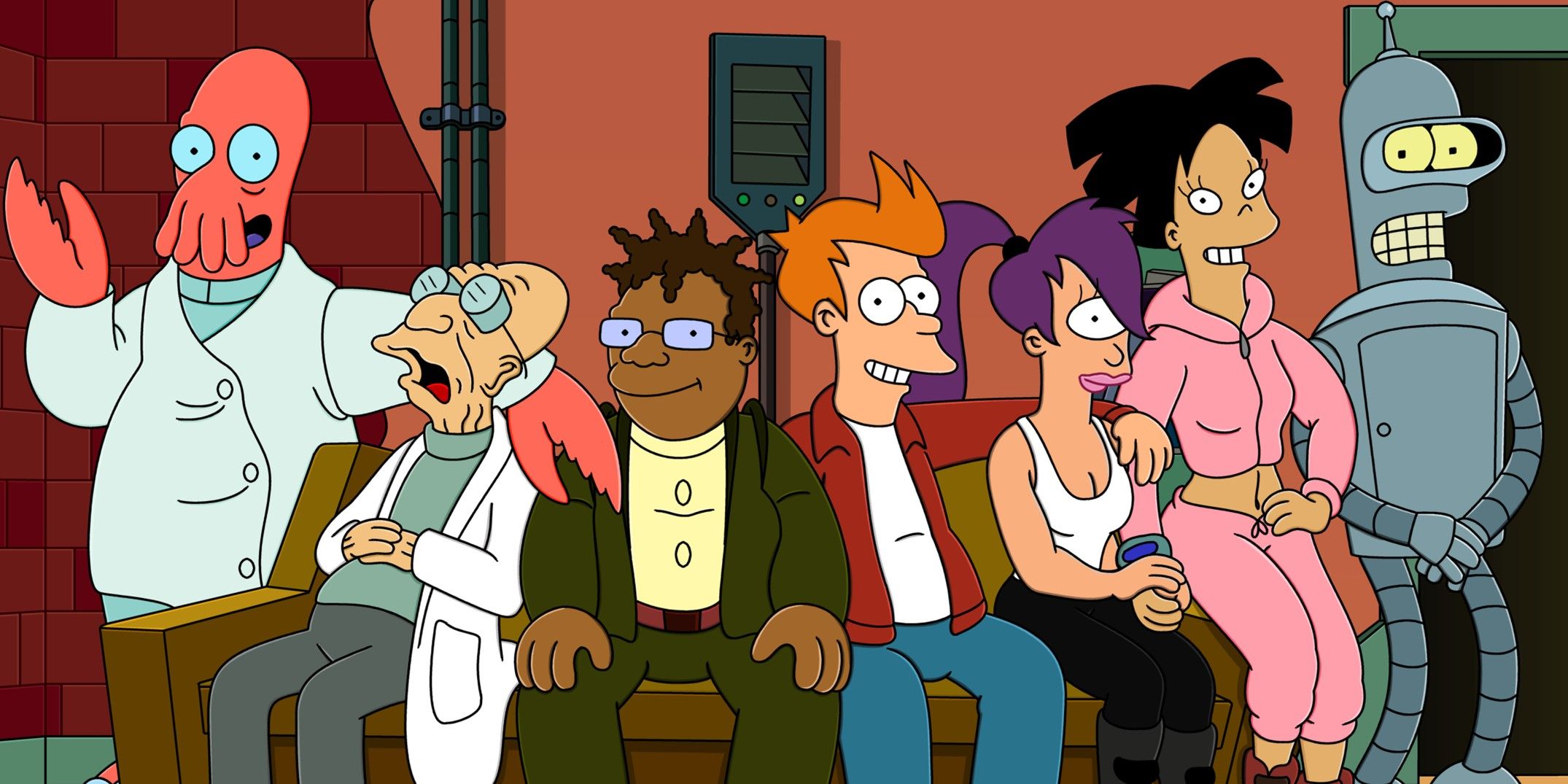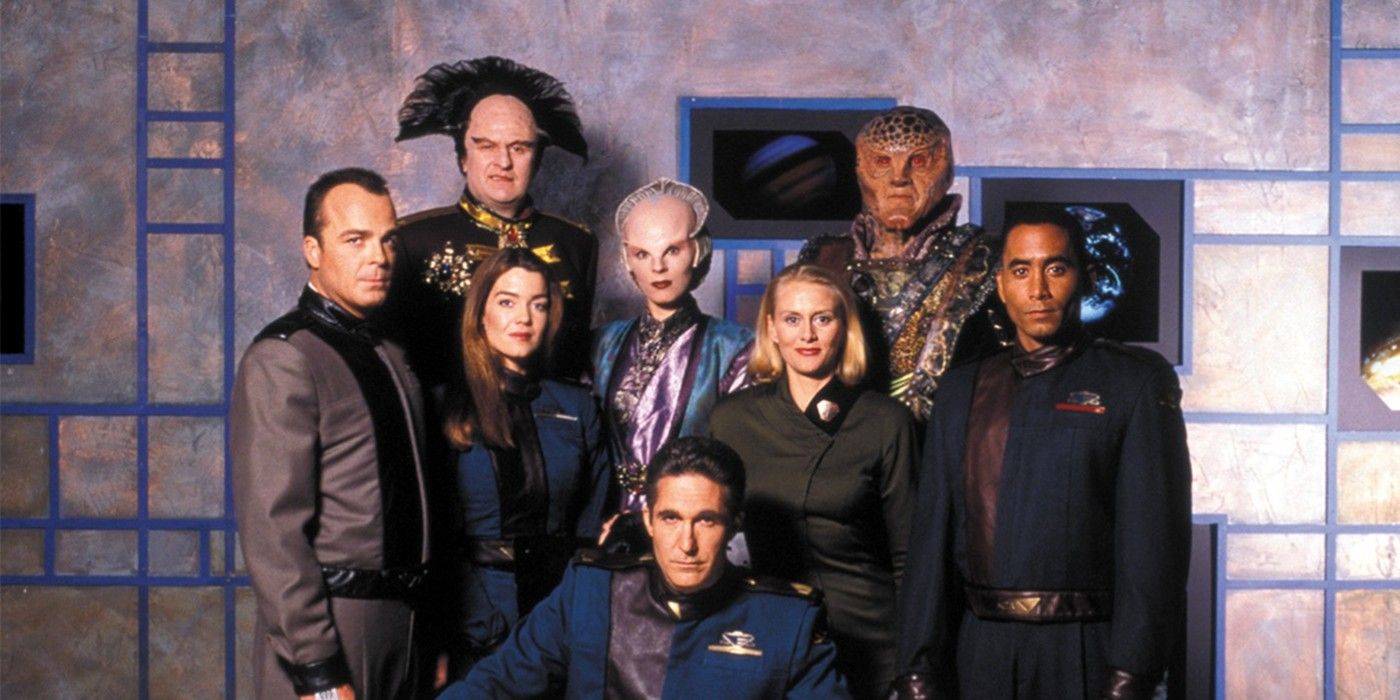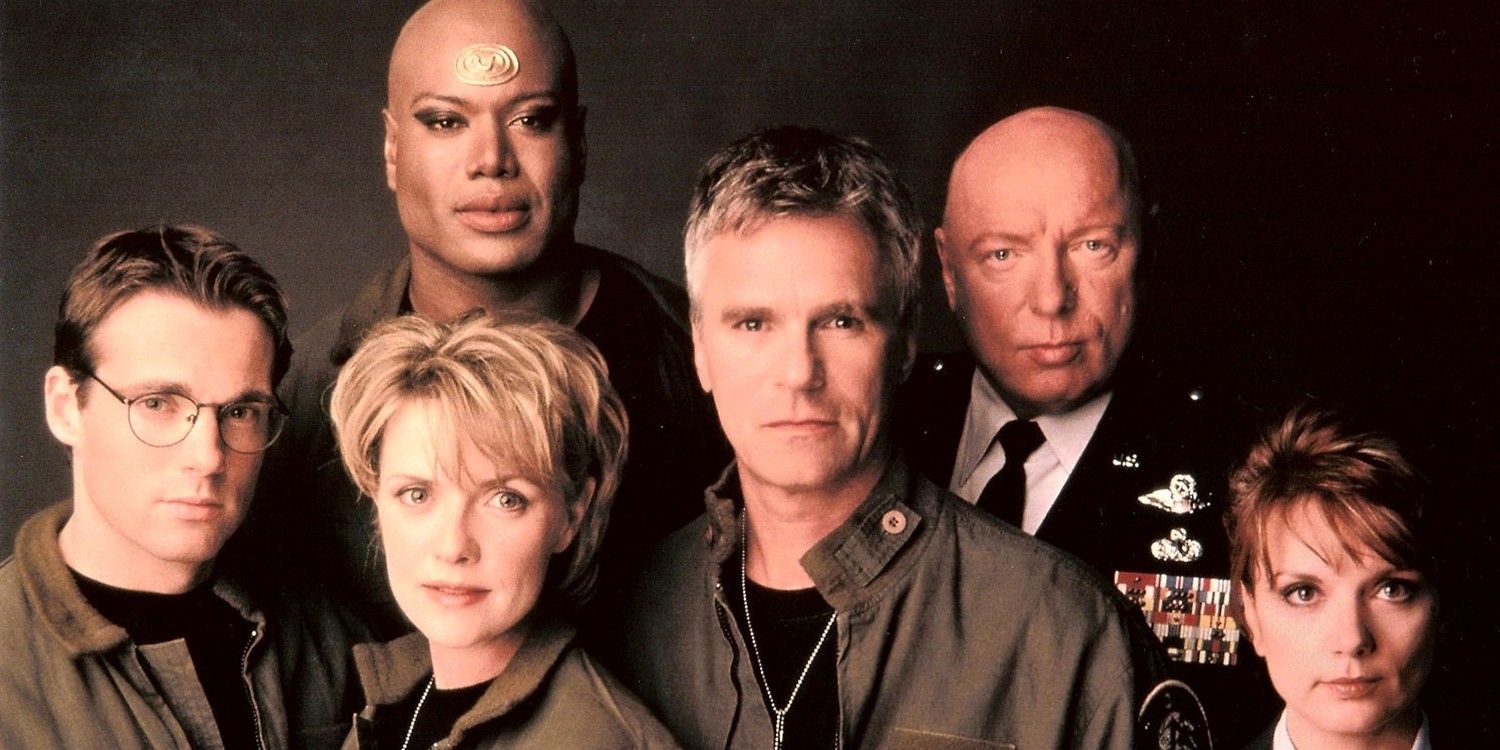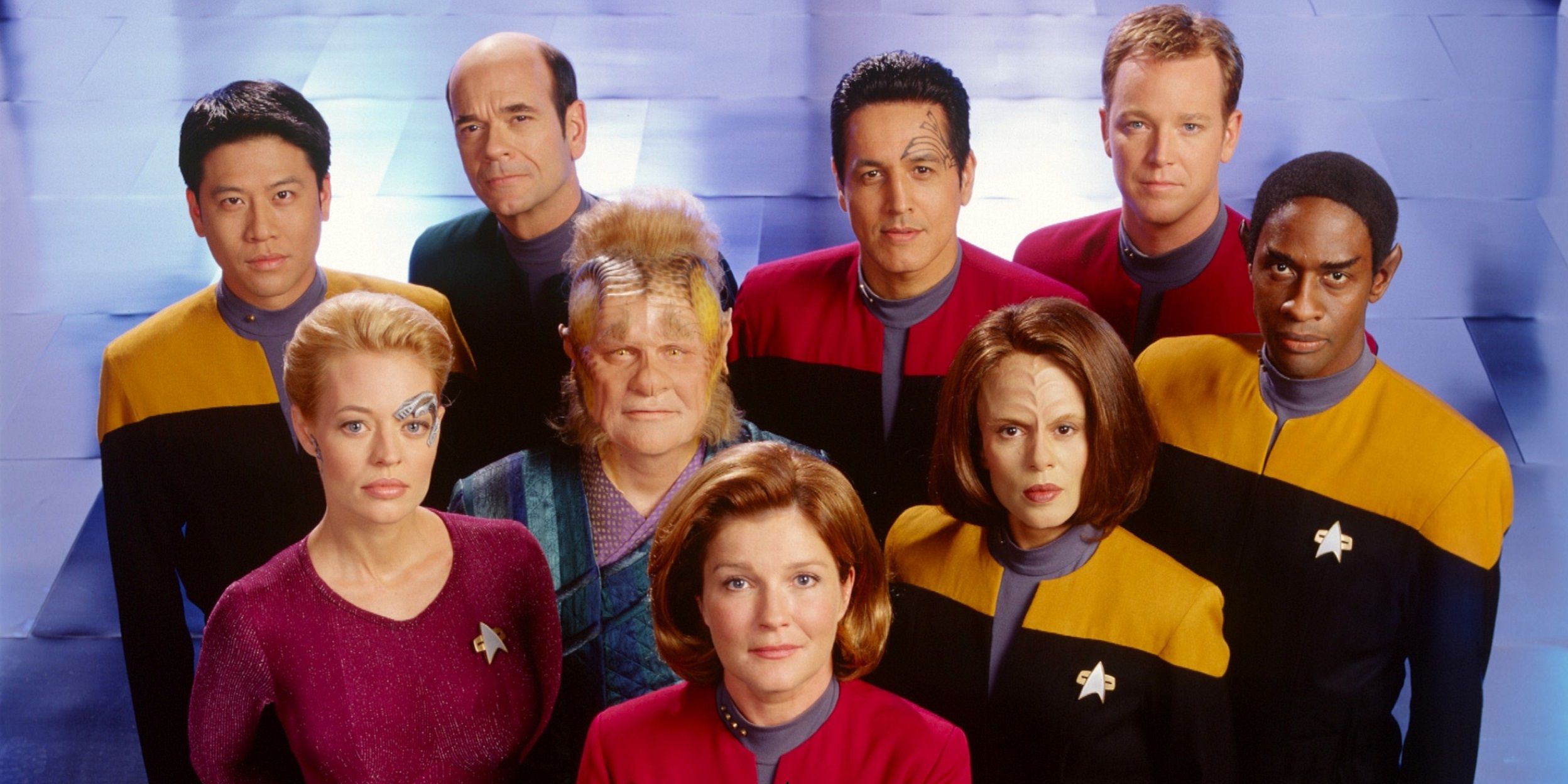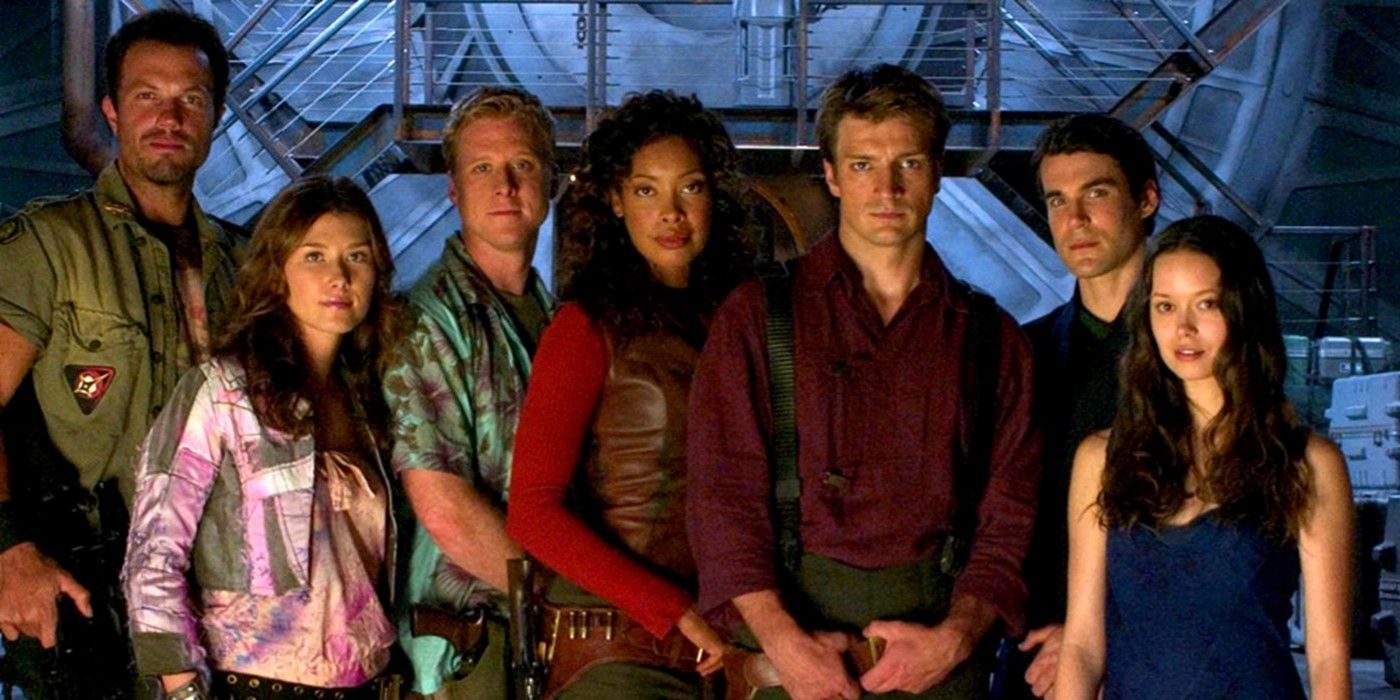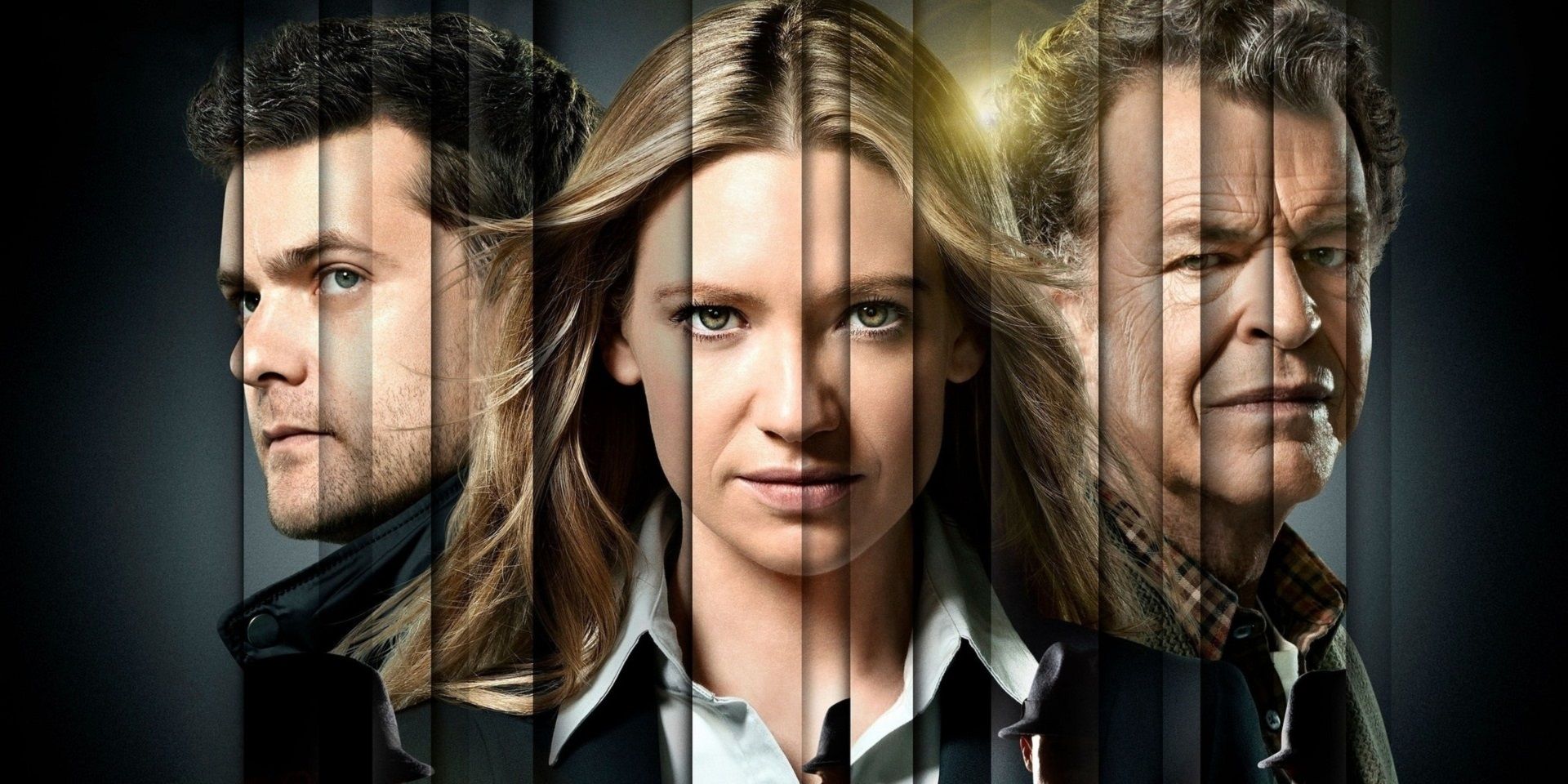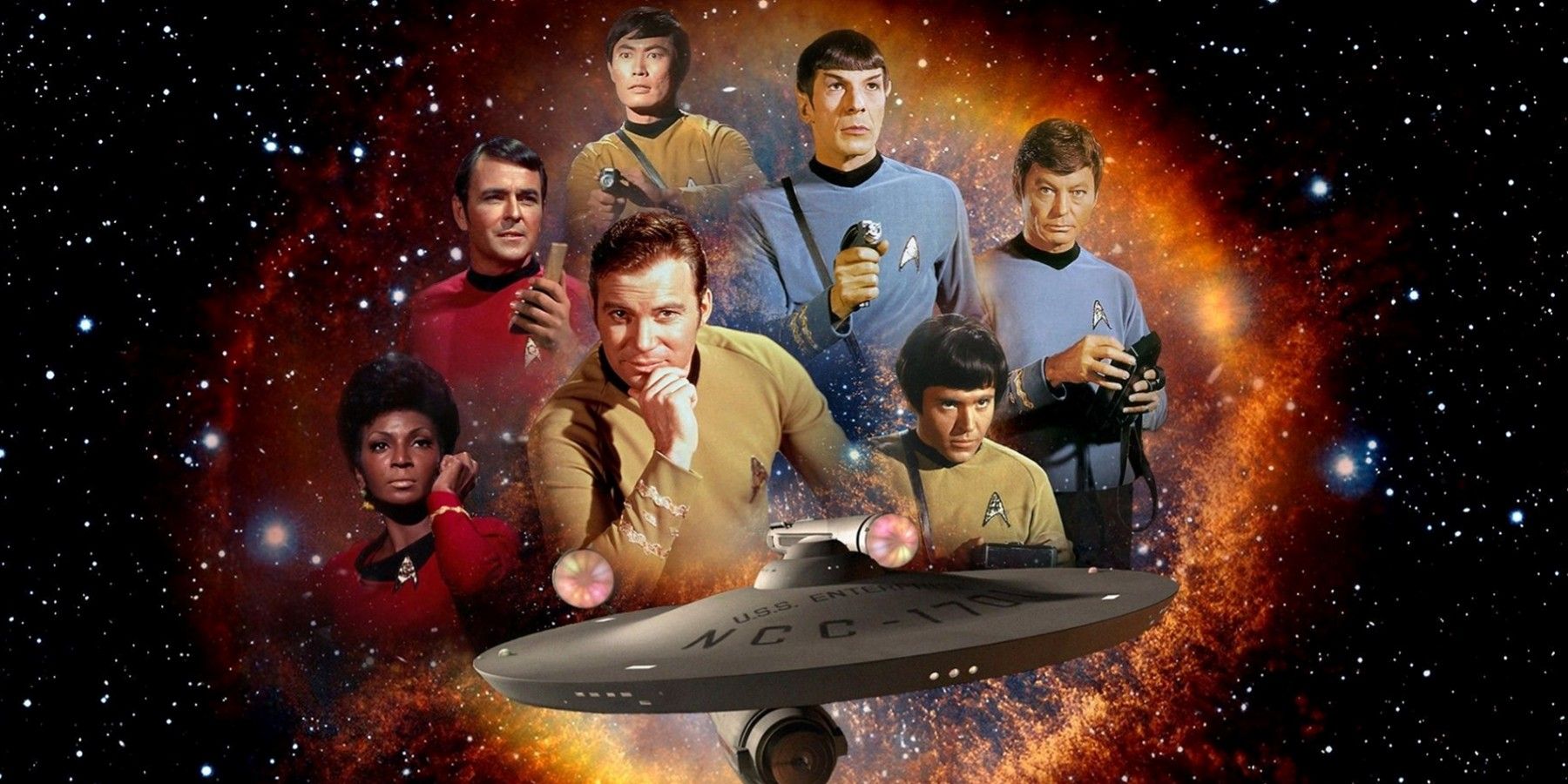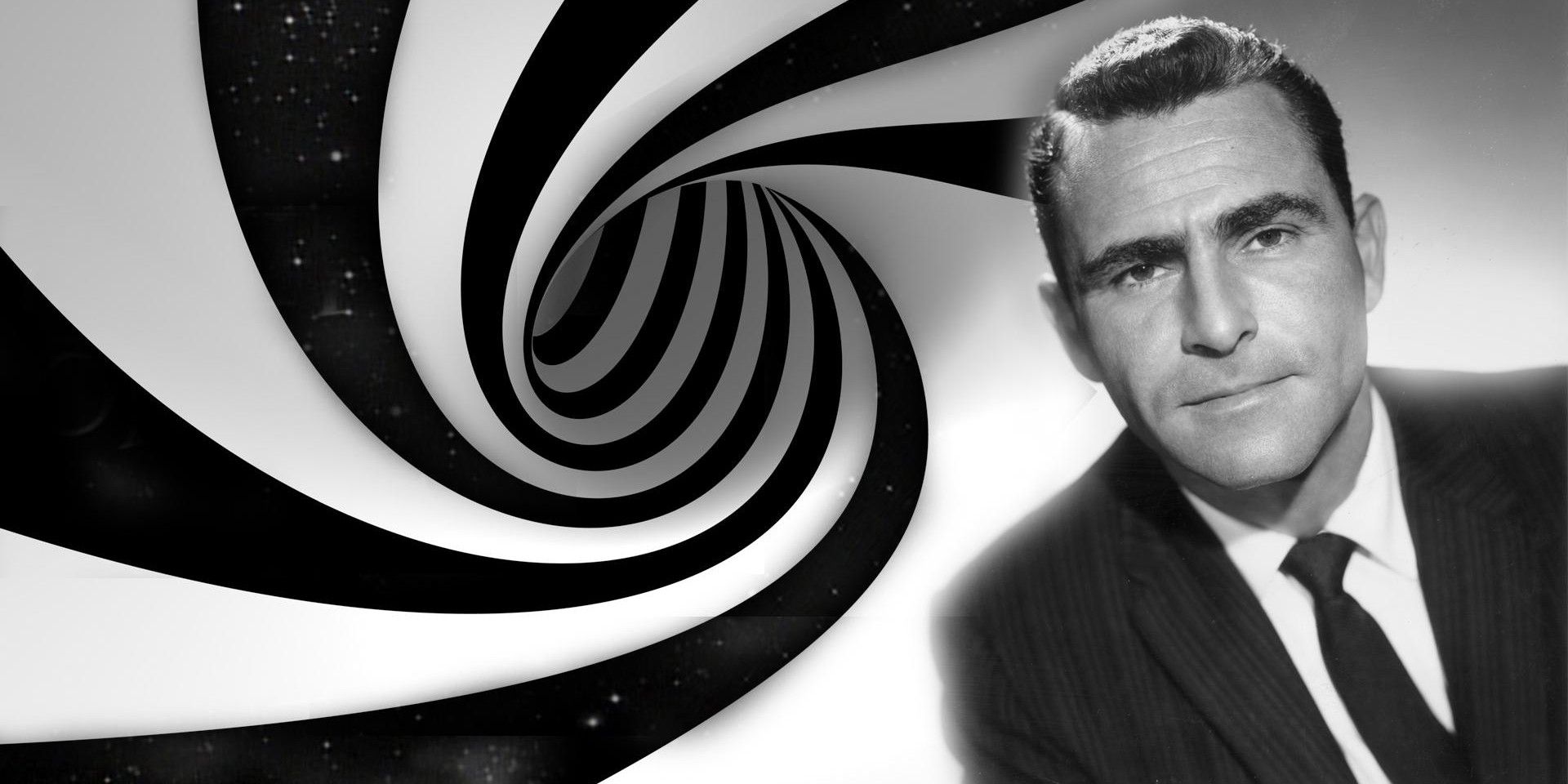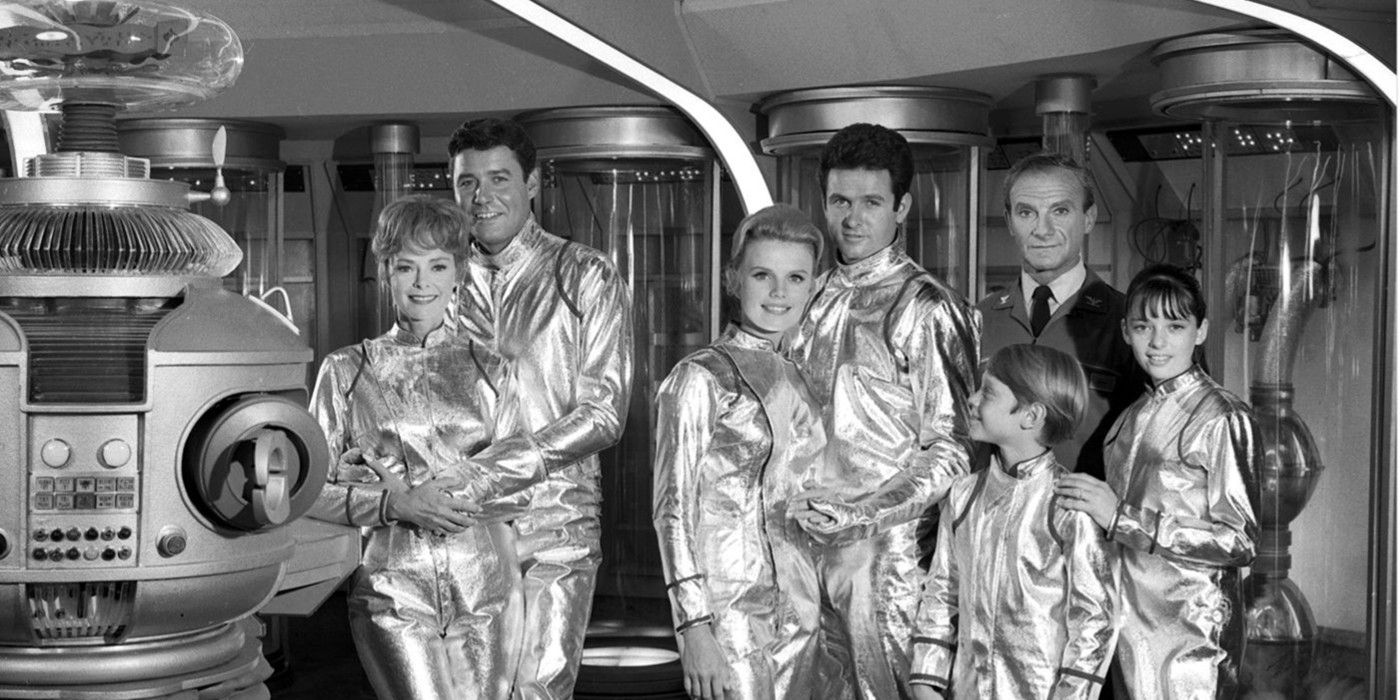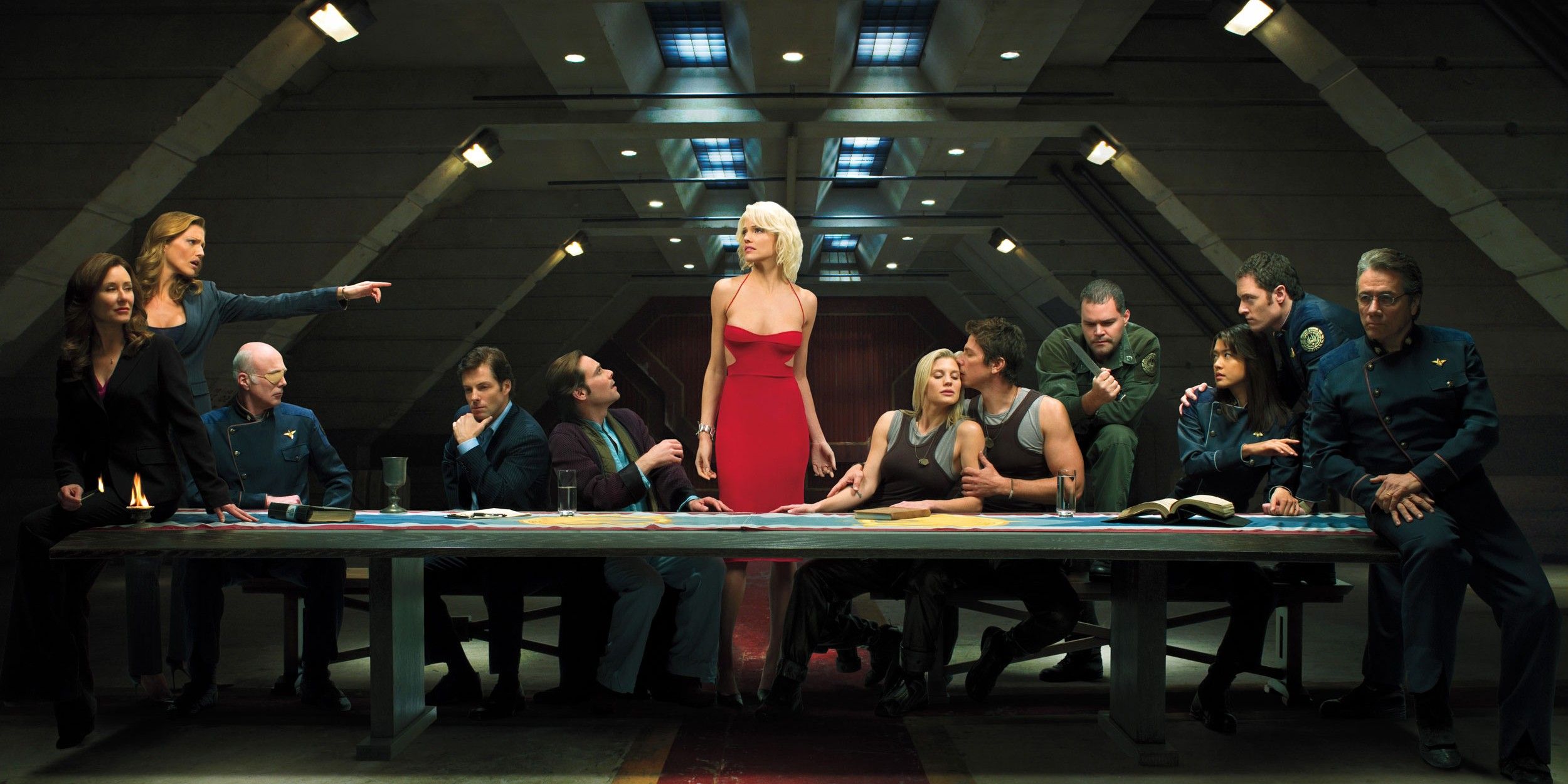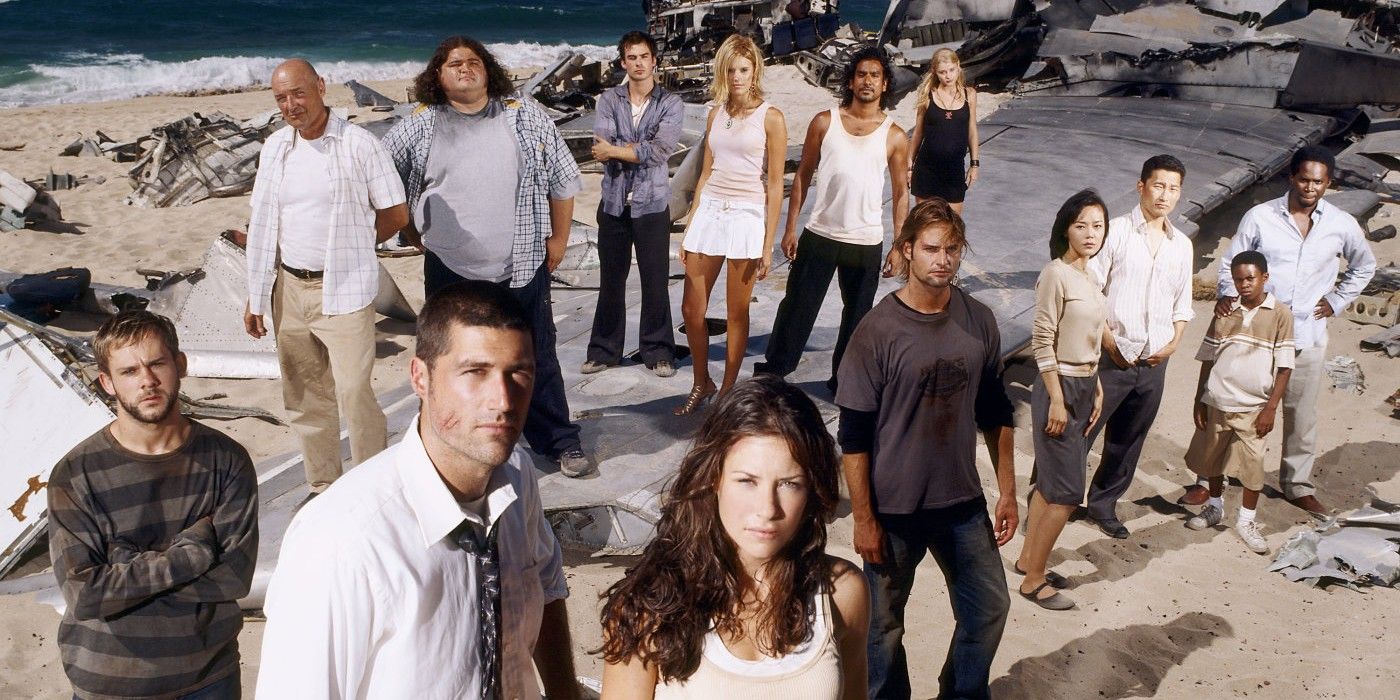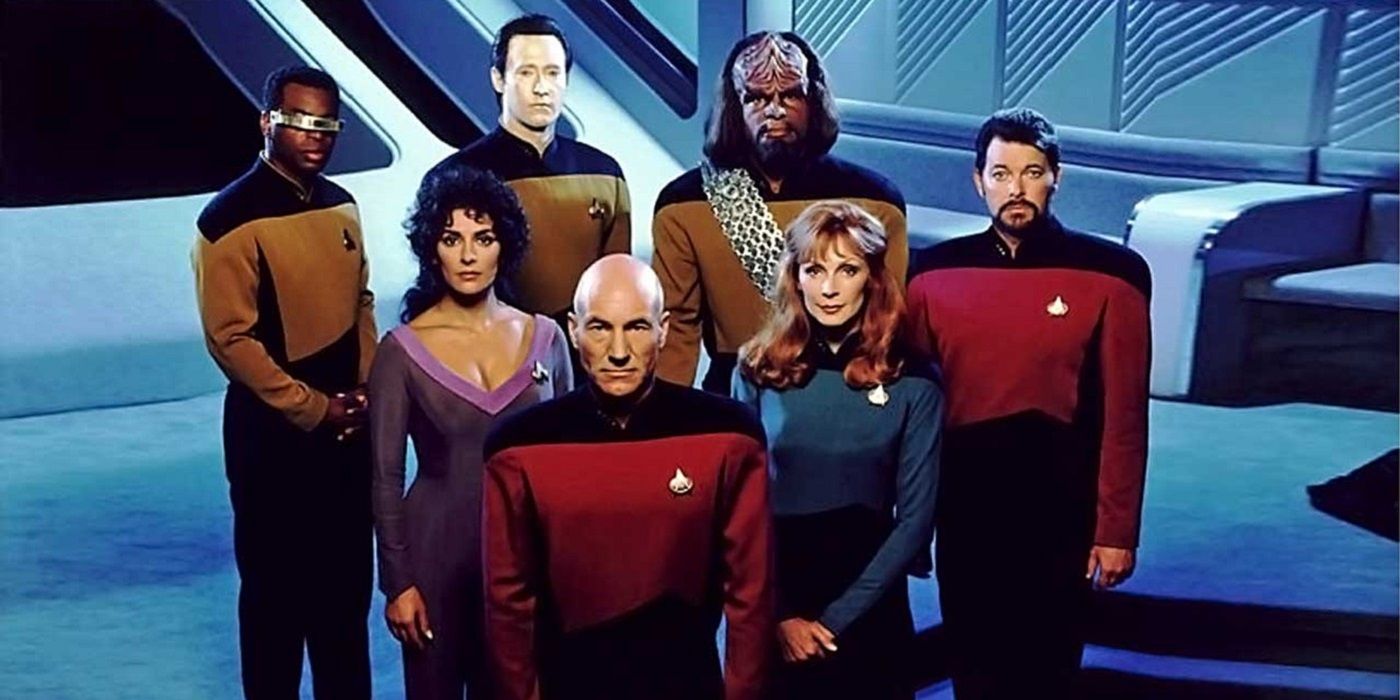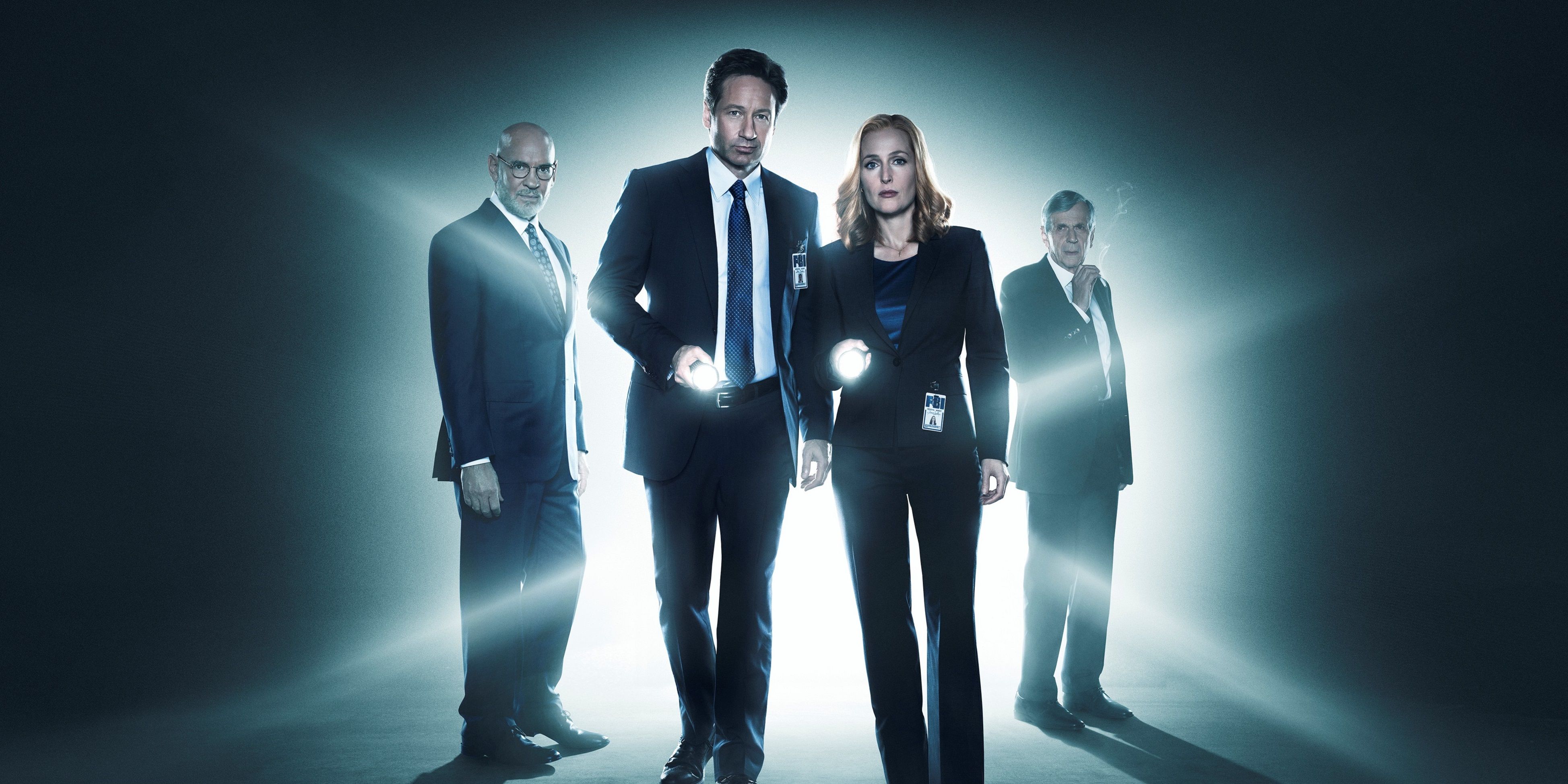With the upcoming release of Star Trek Beyond, and the forward movement on a new Star Trek television series, we thought we'd take a look back at the franchise's roots and compile a list of the best science fiction television shows around.
As with all of these type of lists, the entries are completely subjective. This list is mainly based off of the influence the show had to popular culture and universe building. We also looked into the sort of fan-base the show’s inspired and how well they were received critically.
Here are The 20 Best Science Fiction TV Series Of All Time:
20. Star Trek: Enterprise
Created by Rick Berman and Brannon Braga, based on characters created by Gene Roddenberry, Star Trek: Enterprise lasted 4 seasons for a total of 94 episodes. It ran from 2001 to 2005 on UPN (which is now The CW). The series starred Scott Bakula, John Billingsley, Jolene Blalock, Connor Trinneer and Dominic Keating and served as a prequel to the original Star Trek series.
The show took place in the 22nd century, and followed the adventures of the crew of Enterprise (registration NX-01), the first deep space explorers for Starfleet. While initially, the show was well received by critics and fans, it soon began to drop in ratings. Whether this was because of the content itself, or audiences growing tired of the Star Trek franchise as a whole, is unclear, although probably a bit of both. But, for introducing the world to the first crew of the starship Enterprise, it deserves a place on this list.
19. Terminator: The Sarah Connor Chronicles
Based on characters created by James Cameron and Gale Ann Hurd in their Terminator film franchise, The Sarah Connor Chronicles was created by Josh Friedman. The show lasted 2 seasons for a total of 31 episodes, which ran from 2008-2009 on FOX. The series starred Lena Heady, Thomas Dekker, Summer Glau, Brian Austin Green, Shirley Manson and Garrett Dillahunt.
The show was considered a spinoff of the film series, following the events of Terminator 2: Judgment Day and completely ignoring Terminator 3: Rise Of The Machines (and everything that came after that). It took place four years after Judgment Day, when Skynet takes over, and follows Sarah and John, who are forced to leap forward in time to 2007. Once there, they meet a teenage female Terminator sent back by John to protect them. Although the Terminator mythology is now convoluted with new timelines and the like, the series took what was best about the franchise (T2) and expanded on it to pretty great results. Sadly, the series was canceled before viewers could get any sort of closure, but it’s worth a watch if for nothing else than to see Summer Glau kick some more butt, this time as a Terminator from the future. More Lena Headey is never a bad thing, either.
18. Sliders
Starring Jerry O’Connell, John Rhys-Davies, Sabrina Lloyd and Cleavant Derricks, Sliders was created by Tracy Torme and Robert K. Weiss. The show ran from 1995-1998 on FOX and then from 1999-2000 on Sci-Fi for a total five seasons. In all, 88 episodes of the show were produced. It followed a group of ‘sliders,’ people travelling through dimensions to parallel versions of Earth. When their equipment is damaged on their first slide, they are unable to get home and must continue to slide, hoping to eventually end up back in their own universe.
FOX aired episodes out of order to capitalize on certain story elements, leading to continuity errors and confusion for viewers. Due to flagging ratings, the series decided to focus on more action oriented storytelling, losing its initial showrunners in the process. Despite these problems, the show’s success (at least during the first 3 seasons) was due mainly because of the chemistry of the cast. That, coupled with the fact that episodes usually featured Earth with various alternate histories, making for an interesting look at various 'what-if' possibilities for our own reality. That’s the main reason it gets a place on the list.
17. Quantum Leap
Created by Donald P. Bellisario, Quantum Leap told the story of physicist Dr. Sam Beckett who inadvertently gets sucked into a time travel experiment that he can’t get out. He ‘leaps’ through the past, taking the place of someone who resides there. His goal is to change the past, to make things right, which in turn triggers his next leap. He is always holding out that the next leap will be the one to take him home.
The series starred Scott Bakula, Dean Stockwell and Deborah Pratt, who voiced the AI character of Ziggy. The show was not only an interesting, and sometimes gasp-worthy, look at the history of the 20th century, but it was also a tale of making amends and doing what is right... but not in a preachy way, which is what makes it so special. It’s a testament to friendship and sacrifice, and the relationship between Bakula’s Scott and Stockwell’s Al is one for the ages.
16. Star Trek: Deep Space Nine
Deep Space Nine ran for seven seasons, from 1993 to 1999 in syndication. It was created by Rick Berman and Michael Piller, with a total of 176 episodes produced. The series starred Avery Brooks, Nana Visitor, Rene Auberjonois, Alexander Siddig, Terry Farrell and Colm Meaney. It followed the lives of the crew stationed on the newly liberated Bajoran space station, now named Deep Space Nine.
The series was different from other offerings in the Star Trek franchise in that it is set on a station as opposed to another starship. This was mainly done to differentiate it from the popular (and still on the air at the time) Star Trek: The Next Generation. DS9 was also the first Trek offering to feature a Black captain, Benjamin Sisko (Avery Brooks), and set itself apart by focusing more on the inter-personal and religious beliefs of its characters than on the actual exploration of space. It is also known for it’s darker tones and slightly more morally ambiguous themes than other Star Trek series. While not quite as popular as some of the other Trek spinoffs, it still garnered enough interest to make it the number one syndicated show in the US at one point.
15. Orphan Black
Starring Tatiana Maslany, Orphan Black is the brain-child of Graeme Manson and John Fawcett. The show premiered on March 30, 2013 and is currently in its fourth season. A fifth and final 10-episode season has been announced, set to air in 2017. The show follows the character of Sara Manning, a woman who assumes the identity of Elizabeth Childs, a doppelgänger of herself who committed suicide. She soon finds out that she is a clone and has many clone ‘sisters’ spread throughout the world.
While the premise of the series is enough to pique even the most indifferent viewers' interest, the main reason that this show is so good is because of Maslany. Her ability to morph into all of these very different characters and make you believe she is someone new each and every time, is incredible. The dark, yet surprisingly humorous series is definitely worth a watch, even if sci-fi isn’t really your thing.
14. Futurama
Futurama, the critically acclaimed animated series created by Matt Groening, aired for a total of seven seasons, spread over a number of networks. The show initially premiered on FOX in 1999 and ran through 2003 for a total of 72 episodes. Futurama was officially canceled by the network, but went into syndication, where Comedy Central then picked it up. They commissioned 52 new episodes that aired from 2010 to 2013. The series followed the life of Philip J. Fry, a pizza delivery guy who was accidentally cryogenically frozen and then woke up 1000 years in the future.
Although it had a bit of a struggle finding the right home, the show was still a success, winning a number of Annie and Emmy Awards. Its idea of what the future could look like is startling and hilarious, but the show itself is more about the characters and the family that they’ve created. While it might revolve around aliens, robots and spaceships, at it’s center is nothing but heart.
13. Babylon 5
Created by J. Michael Straczynski, Babylon 5 aired from 1994 to 1997 on the Prime Time Entertainment Network, with the final season in 1998 airing on TNT. A total of 110 episodes of the series were produced, with Straczynski writing 92 of them. The series starred Bruce Boxleitner, Claudia Christian, Jerry Doyle, Mira Furlan and Richard Biggs. It followed the staff, both human and alien, assigned to Babylon-5, a five-mile long space station.
One of the most interesting things about the series is that it takes place in sequential time, with each season being a year in the life on the station. The overall arc follows the period of 2258-2262. The series was ground breaking in its use of special effects and won two consecutive Hugo Awards for Best Dramatic Series, as well as a number of Emmys. The storytelling was darker and more complex than previous sci-fi offerings, using religion, prophesies, racial bigotry and political and social pressures as a backdrop. It is considered one of the most influential and complex sci-fi shows of all time.
12. Stargate SG-1
One of the longest running sci-fi series of all time, Stargate SG-1 was created by Brad Wright and Jonathan Glassner, based on the film Stargate by Roland Emmerich and Dean Devlin. The series aired from 1997 to 2002 on Showtime and then from 2002-2007 on the Sci-Fi Channel. Over 10 seasons, 214 total episodes (as well as two direct-to-DVD films) were produced. The series starred Richard Dean Anderson, Michael Shanks, Amanda Tapping and Christopher Judge. The series takes place about a year after the events of the film and follows an elite team of US air force operatives sent to explore the other galaxies revealed through the Stargate.
The series was steeped in a great deal of Earth mythology, borrowing from Greek, Egyptian and Norse cultures, as well as Arthurian legend. The series was critically panned, but found a rabid and vocal fan following that resulted in the creation of two spinoffs; Stargate: Atlantis and Stargate: Universe, as well as an animated series, Stargate: Infinity. While there’s no denying the appeal, given its long television run, this is the kind of show that you either love or hate, much like the majority of critics.
11. Star Trek: Voyager
Another franchise in the Star Trek universe, Star Trek: Voyager was created by Rick Berman, Michael Piller and Jeri Taylor. It aired from 1995 to 2001 on UPN (now The CW), with a total of 172 episodes produced. The series starred Kate Mulgrew, Robert Beltran, Roxann Dawson, Jennifer Lien, Ethan Phillips, Robert Picardo and Jeri Ryan. It followed the story of the crew of the starship USS Voyager, after it becomes stranded in the Delta Quadrant, 70,000 light years away from Earth. The series starts as they begin their 75-year journey home.
The show was the first to showcase a female captain in the Star Trek franchise, making it one of the most feminist sci-fi shows to air at that time, whether it wanted the title or not. What sets Voyager apart from the other Star Trek offerings is the fact that this crew is stranded in an area of the universe that no one had been to before. It gave the showrunners free rein to create all kinds of new and interesting aliens and societies. That, coupled with the cast that made up the crew of Voyager, make this an important and unforgettable entry into, not only the Star Trek universe, but in sci-fi overall.
10. Firefly
Created by Joss Whedon, Firefly aired for a total of 13 episodes on the Fox network in the fall of 2002. Starring Nathan Fillion, Alan Tudyk, Gina Torres, Sean Maher, Adam Baldwin, Morena Baccarin, Jewel Staite, Ron Glass and Summer Glau, it followed the crew of the ‘Firefly-class’ spacecraft, Serenity, as they roamed the galaxy in search of that next job. The series was canceled after 11 of the 14 episodes that were produced aired, with the network choosing not to air the final 3 episodes. Those only became available once the series was released on DVD.
On the surface, a sci-fi western doesn’t make a lot of sense, but Whedon was able to bring the two together to create something truly special. Of course, a lot of that had to do with the cast that he assembled for this project. The chemistry between the cast and the characters are what make this a truly special piece of sci-fi. Although it was short-lived, the series gained a fervent and vocal fan-base that helped get the film Serenity made, which tied up some loose ends left by the abrupt cancellation of the show. To this day, the fandom is still trying to get Serenity back in the air, where she belongs.
9. Fringe
Airing on the Fox network, Fringe premiered on September 8, 2008 and ran through January 18, 2013 for a total of 5 seasons. It was created by J.J. Abrams, Alex Kurtzman and Roberto Orci. Overall, a total of 100 episodes of the show were produced. It starred Anna Torv, Joshua Jackson and John Noble and followed the story of FBI Fringe division members Olivia Dunham and Peter and Walter Bishop as they investigated mysterious and disturbing occurrences. It was later discovered that they had to do with a parallel universes and alternate timelines and the like.
Although it started out as a more procedural, monster-of-the-week type show, once it found it’s footing and began a more serialized story, the series really began to take off. The show became increasingly better as time went on, and really seemed to blossom when the parallel universe angle was thrust into the spotlight, and the cast got a chance to shine. With some of the most interesting ‘what just happened’ moments in TV and a powerful, but understated performance by Noble, Fringe is must see sci-fi for all fans of the genre.
8. Star Trek: The Original Series
Originally airing from 1966 to 1969, Star Trek lasted 3 seasons, with a total of 79 episodes produced. The show was created by Gene Roddenberry and followed the crew of the starship USS Enterprise on it’s five-year mission to explore strange new worlds and seek out new life and new civilizations and to boldly go where no man had gone before. It starred William Shatner, Leonard Nemoy, DeForest Kelly, James Doohan, George Takei, Nichelle Nichols and Walter Koenig.
There’s not much to say about Star Trek that hasn’t been said before. While it wasn’t critically loved by any means and was soon canceled in its original run, it became a worldwide phenomenon when it hit syndication. It spawned a ravenous fandom that sky-rocketed it into cult classic status and forced the creation of an entire franchise. It is one of the most popular and influential television series of all time.
7. The Twilight Zone and The Outer Limits
Created by Rod Serling, The Twilight Zone aired on CBS from 1959 to 1964. A total of 156 episodes of the anthology show were produced. The premise of the series was episodic, unrelated dramatic stories that each had a paranormal, science fiction or futuristic spin, often with a surprising ending. Although it’s been more than 50 years since the show went off the air, it has left an indelible impression and can still be seen in syndication today. Ahead of it’s time, it showcased creativity with incredible narrative, and is one of the most iconic and classic television shows in history.
The Outer Limits aired on ABC for 2 seasons, from 1966 to 1968. There were a total of 49 episodes produced, and unlike it’s predecessor, The Twilight Zone, it focused heavily on the sci-fi aspect of it’s stories. It was also an anthology series with standalone episodes that were each a self-contained story, but it was darker with action, and a little less philosophy than Zone. It’s considered by some as the best program of its type to ever air on network television.
6. Lost In Space
Premiering in 1965, Lost In Space aired for 3 seasons on CBS. The series was created by Irwin Allen, and a total of 83 episodes were produced. Starring Guy Williams, June Lockheart, Mark Goddard, Marta Kristen, Angela Cartwright, Billy Mumy and Jonathan Harris, the show follows the adventures of the Robinson family, and the evil Dr. Smith, when their spaceship crash lands on an unknown planet with no way to return home.
Not a critical hit by any means, Lost In Space actually managed to beat the original Star Trek in the ratings. While it is often looked at as a ‘what not to do with sci-fi,’ due to it’s decline into pretty campy storytelling, especially during the second and third seasons, it still holds a place in television history. And Dr. Smith is one of the most iconic and recognizable television villains of all time.
5. Battlestar Galactica
A re-imagining of the 1978 series created by Glen A. Larson, the newest version of Battlestar Galactica was developed by Ronald D. Moore. The series ran for four seasons, from December 2003 to March 2009. A total of 75 episodes of the series were produced during it’s run. Starring Edward James Olmos, Mary McDonnell, Katee Sackhoff, Jamie Bamber, James Callis, Tricia Helfer and Grace Park, the series follows the lives of a group of humans who survived the destruction of their colonies and set off to discover the fabled Earth.
Unlike the 1978 series that it was based on, this iteration of Battlestar was critically acclaimed, and for good reason. The series transcended the sci-fi genre and firmly entrenched itself as one of the best dramas on television. Its dark and tumultuous plot, coupled with an incredible cast that brought a complex humanity to its characters, make Battlestar easily one of the best space operas out there.
4. Lost
Created by J.J. Abrams, Jeffrey Lieber and Damon Lindelof, Lost ran for 6 seasons on ABC. It premiered on September 22, 2004 and ended May 3, 2010, for a total of 121 episodes. The series starred Matthew Fox, Evangeline Lilly, Naveen Andrews, Josh Holloway, Emilie de Ravin and Terry O’Quinn. It followed the survivors of a commercial airline flight that crashed on a mysterious tropical island in the South Pacific. The narrative was told in real-time and through flashback and flash-forward sequences, which often gave the audience greater insight into the characters and their motivations.
The series is highly critically acclaimed, often cited as one of the best television dramas of all time. It garnered many Emmy, Golden Globe and SAG nominations, and racked up a number of wins, including the Best Drama award at the 2006 Globes. The show started out as a character driven drama, but as the series progressed, its focus shifted and it became a complex mystery with a striking mythology that often left more questions than answers. The finale is still a hotly debated topic, but love it or hate it, one thing’s for sure; you will always remember it.
3. Star Trek: The Next Generation
Given the huge syndication success of the original series, Paramount decided to reboot the Star Trek franchise in 1987. Star Trek: The Next Generation was created by Gene Roddenberry, based on concepts that he had created back in the 1960s. It aired for a total of 7 seasons in first run syndication, ending on May 19, 1994. In all, 174 episodes of TNG were produced.
The show followed a new crew of the starship USS Enterprise, led by Captain Jean-Luc Picard, set 100 years after the 5 year mission of the original crew. Nominated for a number of awards, the series showcased everything that Star Trek was about, and was the perfect embodiment of Roddenberry’s vision. Filled with a cast of unique and interesting characters, the show made an indelible impression on television audiences around the world. It will go down in television history as one of the best sci-fi shows of all time.
2. Doctor Who
First airing in 1963, Doctor Who has become a pop culture staple all over the world. In its initial run, the show ran for 26 seasons, from 1963 to 1989. The series was revived in 2005, and so far a total of 826 episodes have been produced for the BBC, encompassing 263 serialized stories. Created by Sydney Newman, C.E. Webber and Donald Wilson, the series follows the adventures of ‘The Doctor,’ a Time-Lord who explores the universe with the help of his time travelling spaceship, the TARDIS.
Over the last 50 odd years, there have been 12 different Doctors and a pretty cool premise to explain why they’re all so different. One that involves mortality and the ability to regenerate into new incarnations of the character. But it’s the overall narrative of the series that has kept Whovians enthralled for all these years. Not only did the show influence an entire generation of British performers, but it had and continues to, leave a lasting impression in science fiction pop culture.
1. The X-Files
Created by Chris Carter, The X-Files ran from September 10, 1993 to May 19, 2002, for a total of 202 episodes, before it was revived for a limited season in 2016, increasing the total to 208. Starring David Duchovny, Gillian Anderson, Robert Patrick, Annabeth Gish and Mitch Pileggi, the series followed the lives of FBI special investigators Fox Mulder and Dana Scully as they investigated unusual, unsolved paranormal cases.
Inspired by the likes of The Twilight Zone, Tales From The Darkside and Kolchak: The Night Stalker, the series transcended the genre label and became one of the most popular and critically acclaimed television programs of the 1990s. Although the show was mainly of the ‘monster of the week’ variety, the background story arc and the utter creepiness the show displayed kept audience hooked season after season. The show has left an unmistakable mark on the television landscape, influencing future generations of creators and showrunners to bring sci-fi into the mainstream.

